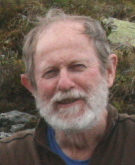Roger Clarke's Web-Site
© Xamax Consultancy Pty Ltd, 1995-2024

Infrastructure
& Privacy
Matilda
Roger Clarke's Web-Site© Xamax Consultancy Pty Ltd, 1995-2024 |

|
|||||
| HOME | eBusiness |
Information Infrastructure |
Dataveillance & Privacy |
Identity Matters | Other Topics | |
| What's New |
Waltzing Matilda | Advanced Site-Search | ||||
Version of 10 November 2020
© Xamax Consultancy Pty Ltd, 2020
Available under an AEShareNet ![]() licence or a Creative
Commons
licence or a Creative
Commons  licence.
licence.
This document is at http://rogerclarke.com/SOS/CAPW-C-Reply.html
My article on 'The Challenges Involved in Establishing a Research Technique' was published in Australasian J. of Infor. Syst. 24 (March 2020), PrePrint at http://rogerclarke.com/SOS/CAPW-C.html
Lim & Rasul submitted a Post-Publication Review in accordance eith the AJIS Guidelines.
This is my Response to that Review.
I welcome the comments made in the Review. They lead me to offer some clarification of two aspects of the original article.
The scope of the research technique that I am endeavouring to establish is "the critical analysis of {the content of} published works" (p.2).
My intention is that researchers "apply the abstract principles in order to customise a research method appropriate to each particular project" (p.15). One part of the customisation process involves establishing an operational definition of relevant 'published works' and 'publishing venues' (p.3). Further decisions each researcher needs to make relate to the population segment, sampling frame and sample selection (p.4).
As the reviewers note, the technique can be applied to projects of the nature of 'critical literature reviews', which by their nature involve "substantial bodies of prior research" (p.9). Although the critical technique naturally bears some similarities to 'systematic literature review', the differences are substantial.
However, the technique has application to collections of published works that do not represent 'a literature'. Examples provided in the article include "one or more journal special issues, narrowly-specialised conferences, or academic books", and publications that address a particular research domain, adopt a particular theoretical lens, or apply a particular research technique, and even, in rare instances, a single, specific work (p.4). Other categories are the complete oeuvre of a particular author, output of a particular research programme, or major works of a 'school of thought'.
All of these applications of the technique go beyond "exposition, application, or at most interpretation" (p.10). As the reviewers comment, critical analysis is appropriate only where the researcher is conscious of the challenges they are taking up, the research design is 'purposeful', and the researcher's demeanour is 'courageous'. I would add that the researcher's demeanour and expression need to be 'constructive' and 'not combative', and their disposition 'calm' and 'patient', in order to deal equably with any editorial or review comments that are not attuned to the approach, or are excessively defensive of the status quo.
The reviewers noted that critical analysis has application to various forms of publication, including research articles and post-published reviews. However, there is a further dimension that the original article may not have sufficiently emphasised.
The article distinguishes the approaches of positivism, interpretivism, design science and critical theory research (p.8), and asserts that "The scope of the critical analysis of published works research technique is intended to encompass [all of these] traditions" (p.13).
The guidance provided is intended to be sufficiently flexible that analysts can evaluate each work in its own terms, but incorporating an appreciation of the original author's own context. Their analysis can then be tailored to reflect, for example, the greater commitment of positivist research to rigour, the instrumentalist and hence 'agenda-driven' nature of design science, and the inherently value-laden exhortations of critical theory research.
Roger Clarke is Principal of Xamax Consultancy Pty Ltd, Canberra. He is also a Visiting Professor associated with the Allens Hub for Technology, Law and Innovation in UNSW Law., and a Visiting Professor in the Research School of Computer Science at the Australian National University.
| Personalia |
Photographs Presentations Videos |
Access Statistics |
 |
The content and infrastructure for these community service pages are provided by Roger Clarke through his consultancy company, Xamax. From the site's beginnings in August 1994 until February 2009, the infrastructure was provided by the Australian National University. During that time, the site accumulated close to 30 million hits. It passed 65 million in early 2021. Sponsored by the Gallery, Bunhybee Grasslands, the extended Clarke Family, Knights of the Spatchcock and their drummer |
Xamax Consultancy Pty Ltd ACN: 002 360 456 78 Sidaway St, Chapman ACT 2611 AUSTRALIA Tel: +61 2 6288 6916 |
Created: 10 November 2020 - Last Amended: by Roger Clarke - Site Last Verified: 15 February 2009
This document is at www.rogerclarke.com/SOS/CAPW-C-Reply.html
Mail to Webmaster - © Xamax Consultancy Pty Ltd, 1995-2022 - Privacy Policy